Sleep is essential to our health, but unfortunately, it’s one of the most overlooked things in today’s world. Most people never take their sleep seriously, which is why problems like lack of rest, poor sleep quality, or insomnia are becoming more common. The biggest reason for all of this is our modern technology.
Smartphones, laptops, social media, and late-night streaming — all of these things are part of our lives. While they make us more comfortable, they also affect our sleep.
In this article, we’ll explore 6 ways in which technology affects your sleep, along with solutions to help you improve your sleep.
Why is sleep so important?
Physical health: During sleep, the body repairs itself, the immune system strengthens, and hormones are balanced.
One Framework’s 6 Ways: How Does Technology Affect Your Sleep?
Sleep is essential to our health, but unfortunately, it’s one of the most overlooked things in today’s world. Most people never take their sleep seriously, which is why problems like lack of rest, poor sleep quality, or insomnia are becoming more common. The biggest reason for all of this is our modern technology.
Smartphones, laptops, social media, and late-night streaming — all of these things are part of our lives. While they make us more comfortable, they also affect our sleep.
In this article, we’ll explore 6 ways in which technology affects your sleep, along with solutions to help you improve your sleep.
Why is sleep so important?
Physical health: During sleep, the body repairs itself, the immune system strengthens, and hormones are balanced.
Lack of sleep can lead to increased mental stress, irritability, and poor concentration, disturbing overall peace of mind.
Work performance: Lack of sleep weakens memory and slows down the speed of work.
Dangerous diseases: Continuously lacking sleep can lead to heart disease, diabetes, obesity, and depression.
6 major effects of technology on sleep
Work performance: Lack of sleep weakens memory and slows down the speed of work.
Persistent sleep deprivation increases the risk of serious health problems such as heart disease, diabetes, obesity, and depression.
6 major effects of technology on sleep
1. Blue light affects the sleep clock

Phones, laptops and TVs all emit blue light. This light makes the brain forget about the day and reduces the sleep hormone “melatonin”. The result? Sleep comes late or not at all.
Example: Scrolling through Instagram in bed at 11 pm keeps you awake despite being tired.
Solution: Set “night mode” on your phone or stop using the screen an hour before bed.
2. Notifications keep the brain awake

Every ping and vibration alerts the brain. Whether you watch it or not, your brain starts waiting for the next notification, which disrupts your sleep.
Example: Just as you’re about to fall asleep, your phone rings and your brain wakes up again.
Solution: Turn on “Do Not Disturb” or leave your phone out of the room.
3. Getting caught up in late-night entertainment

YouTube, Netflix, or games keep us up late into the night. The habit of “just one more episode” pushes sleep time forward.
Example: You were supposed to go to bed at 10 p.m., but you’re up until 1 a.m. while watching an episode.
Solution: Set a time limit for screen time and take a mandatory break at night.
4. News and social media stress

Watching the news, political debates, or work emails at night makes your brain anxious. Instead of relaxing, your brain gets caught up in thoughts, and sleepiness sets in.
Example: Watching your news feed before bed makes your brain more restless.
Solution: Accomplish relaxing activities before bed, such as reading a book, praying, or listening to soft music.
5. Physical pain from a mobile or a laptop
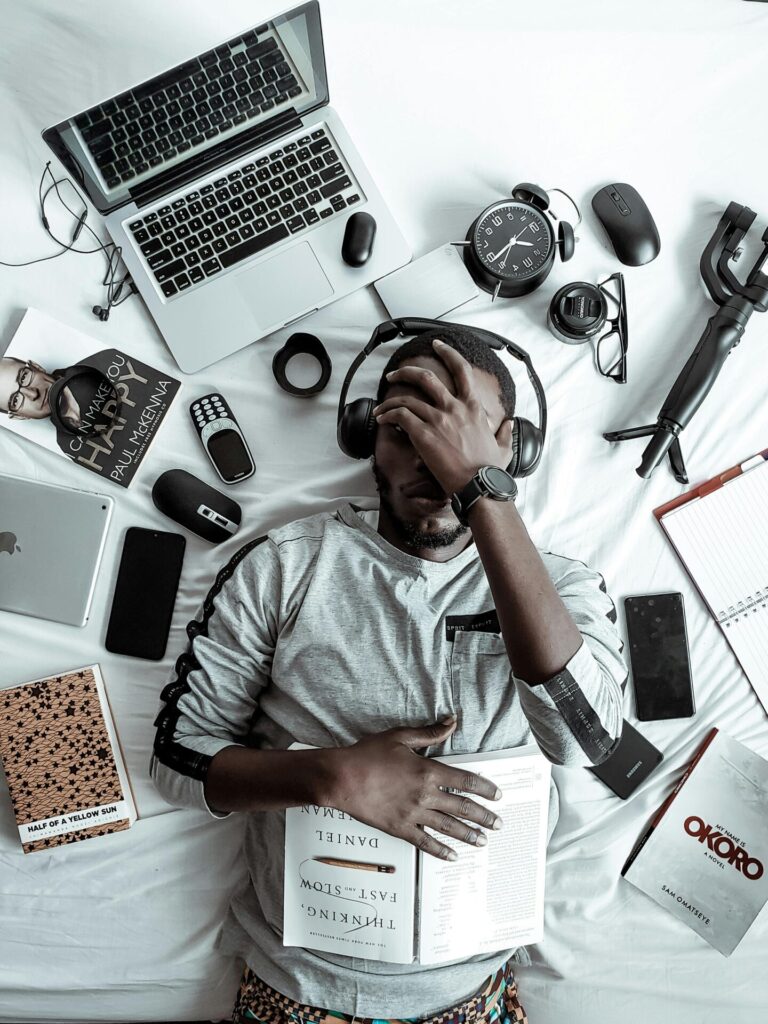
Using a mobile or laptop for a long time causes pain in the neck, back, and eyes. This pain interferes with sleep.
Example: The neck becomes stiff while scrolling and does not relax when lying down.
Solution: Keep the mobile a little away from the eyes and sit in a straight posture.
6. Disrupted sleep schedule
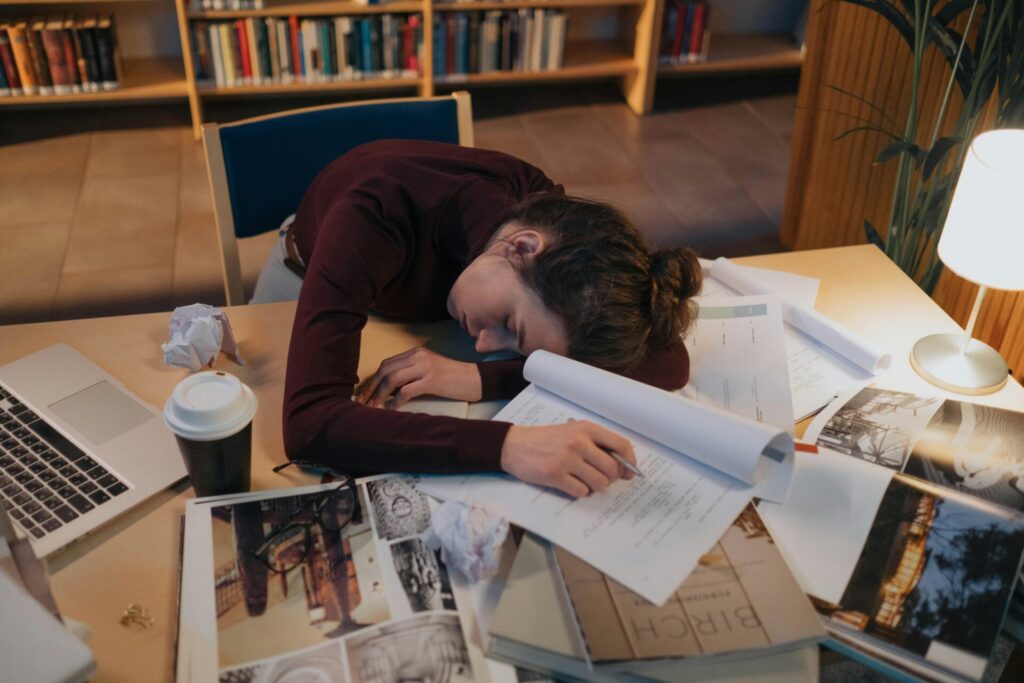
Using too much technology disrupts the sleep schedule. Sleeping late one day and waking up early the next day affects the body’s biological clock.
Example: Staying up late playing games on weekdays and then going to the office early on Monday morning.
Make it a routine to sleep and wake up at the same fixed time each day to improve your sleep quality.
Summary
Technology has undoubtedly brought comfort to our lives, but careless use of it can negatively affect our sleep. Blue light, notifications, late-night entertainment, news, physical discomfort, and a bad schedule — these are all enemies of sleep.
For good sleep, it’s important to put technology aside and create a calm environment before bed.
Frequently Asked Questions (FAQs)
Technology affects the sleep system in several ways:
The blue light from screens reduces the production of the sleep hormone (melatonin).
Notifications keep the brain alert.
Using videos, games or social media late at night delays sleep.
Too much online content increases mental stress, making it difficult to relax.
Tip: Turn off all devices at least an hour before bed.
Blue light sends the message to the brain that it is still daytime, which delays sleep onset and affects the quality of sleep.
Example: If you scroll on your mobile in the middle of the night, you will stay awake instead of falling asleep, even if you are tired.
No, it is better not to. Using your phone keeps your brain active. Social media, messaging or games make it harder to sleep.
Yes, if the music is light and calming, it can help. But avoid looking at the screen and set a timer so that the music stops automatically.

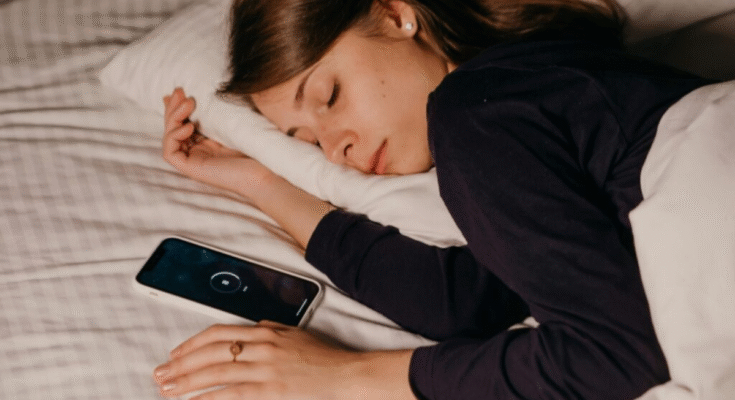

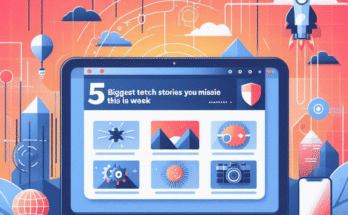
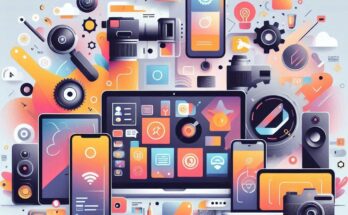
2 Comments on “One Framework’s 6 Ways: How Does Technology Affect Your Sleep”